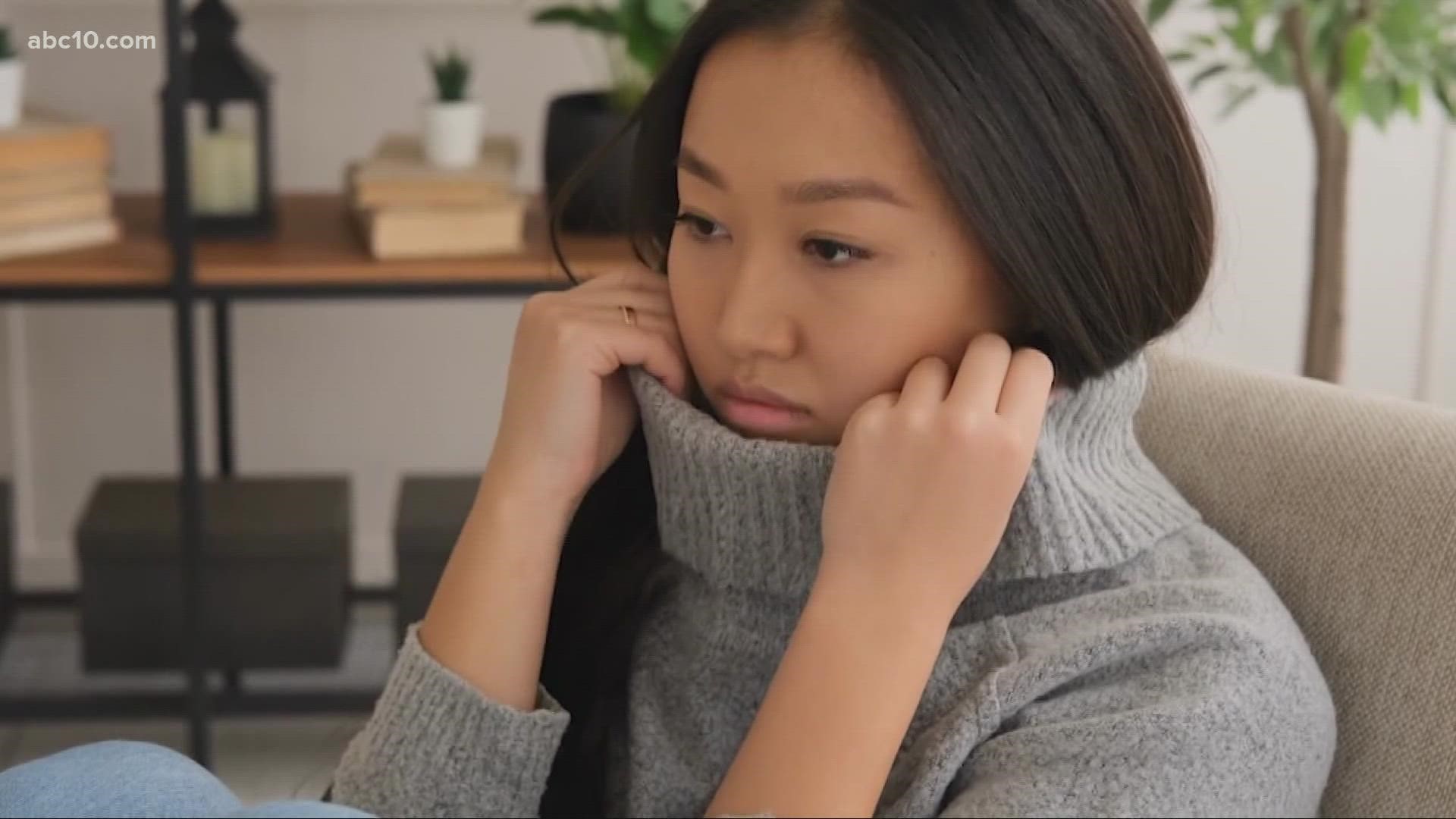SACRAMENTO, Calif. — The most recent surge in COVID cases has many feeling mentally distressed and anxious. While It may be hard to process, many are feeling the same thing.
Paris Dye is the executive director of Impact Sac, a local organization working to empower young people.
“This is something that’s out of everyone’s control, so the sadness is there and a lot of high-stress is there too. As young people are trying to figure out their life and their system, so are their parents,” Dye said.
She explained what she’s seeing in the community.
“We’ve seen a lot of homelessness. We’re experiencing a high amount of teens with food insecurities, where’s your meal coming from? Parents either out of work or not able to go to work because they’ve been exposed,” Dye said.
Sacramento Councilmember Angelique Ashby is also seeing the pandemic repercussions.
“I’m very concerned about the long-term impacts on people at really every age and stage of life in Sacramento,” Ashby said.
She said the city has been trying to alleviate some of the stress and anxiety in two ways. The first is through its COVID response from the beginning.
“The moment that we started allocating resources to issues under the larger umbrella of COVID response, that mental health has been a top tier issue,” Ashby said.
The second has been a focus on food insecurity, digital equity or job loss, Ashby added.
Dr. Maria Koshy is a psychiatrist and the Director of Regional Mental Health for Kaiser Permanente Northern California. She said what everyone is experiencing now can bring back emotions from when the pandemic first started.
“As a society, we are in a very different place and that’s important to keep in mind even as we encounter reminders of what the previous surges have been like when the pandemic first started,” Dr. Koshy said.
She said we have vaccines and treatments, and we understand what we’re up against. Dr. Koshy explained she knows it’s not easy for parents, but there are things they can keep in mind.
“It’s really important for us as parents to be transparent and concrete about what’s going on,” she said.
Dr. Koshy said there are things everyone can all do to take care of each other.
“Reaching out to people that you know are vulnerable the more isolated they get, to engage in one act of kindness every day and to really do your best to be present for the people in your life,” she suggested.
If you’re worried about yourself or someone you love, consider reaching out to one of the following numbers. The California Youth Crisis line is 1-800-843-5200 and the National Suicide Prevention Hotline is 1-800-273-8255.
WATCH ALSO:

















